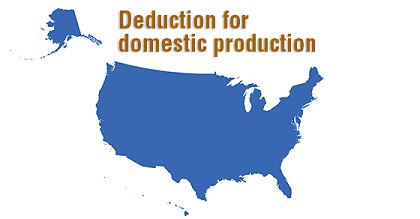Weekly Tax Brief
A timely postmark on your tax return may not be enough to avoid late-filing penalties
- Details
- Published: 11 April 2017 11 April 2017

Because of a weekend and a Washington, D.C., holiday, the 2016 tax return filing deadline for individual taxpayers is Tuesday, April 18. The IRS considers a paper return that’s due April 18 to be timely filed if it’s postmarked by midnight. But dropping your return in a mailbox on the 18th may not be sufficient.
Read more: A timely postmark on your tax return may not be enough to avoid late-filing penalties
Saving tax with home-related deductions and exclusions
- Details
- Published: 06 April 2017 06 April 2017
 Currently, home ownership comes with many tax-saving opportunities. Consider both deductions and exclusions when you’re filing your 2016 return and tax planning for 2017:
Currently, home ownership comes with many tax-saving opportunities. Consider both deductions and exclusions when you’re filing your 2016 return and tax planning for 2017:
Read more: Saving tax with home-related deductions and exclusions
2017 Q2 tax calendar: Key deadlines for businesses and other employers
- Details
- Published: 29 March 2017 29 March 2017

Here are some of the key tax-related deadlines affecting businesses and other employers during the second quarter of 2017. Keep in mind that this list isn’t all-inclusive, so there may be additional deadlines that apply to you. Contact us to ensure you’re meeting all applicable deadlines and to learn more about the filing requirements.
Read more: 2017 Q2 tax calendar: Key deadlines for businesses and other employers
Who can — and who should — take the American Opportunity credit?
- Details
- Published: 23 March 2017 23 March 2017

If you have a child in college, you may be eligible to claim the American Opportunity credit on your 2016 income tax return. If, however, your income is too high, you won’t qualify for the credit — but your child might. There’s one potential downside: If your dependent child claims the credit, you must forgo your dependency exemption for him or her. And the child can’t take the exemption.
Read more: Who can — and who should — take the American Opportunity credit?
When an elderly parent might qualify as your dependent
- Details
- Published: 16 March 2017 16 March 2017

It’s not uncommon for adult children to help support their aging parents. If you’re in this position, you might qualify for the adult-dependent exemption. It allows eligible taxpayers to deduct up to $4,050 for each adult dependent claimed on their 2016 tax return.
Read more: When an elderly parent might qualify as your dependent
Tangible property safe harbors help maximize deductions
- Details
- Published: 28 February 2017 28 February 2017

If last year your business made repairs to tangible property, such as buildings, machinery, equipment or vehicles, you may be eligible for a valuable deduction on your 2016 income tax return. But you must make sure they were truly “repairs,” and not actually “improvements.”
Read more: Tangible property safe harbors help maximize deductions
Deduct all of the mileage you’re entitled to — but not more
- Details
- Published: 21 February 2017 21 February 2017
 Rather than keeping track of the actual cost of operating a vehicle, employees and self-employed taxpayers can use a standard mileage rate to compute their deduction related to using a vehicle for business. But you might also be able to deduct miles driven for other purposes, including medical, moving and charitable purposes.
Rather than keeping track of the actual cost of operating a vehicle, employees and self-employed taxpayers can use a standard mileage rate to compute their deduction related to using a vehicle for business. But you might also be able to deduct miles driven for other purposes, including medical, moving and charitable purposes.
Read more: Deduct all of the mileage you’re entitled to — but not more
Do you need to file a 2016 gift tax return by April 18?
- Details
- Published: 14 February 2017 14 February 2017

Last year you may have made significant gifts to your children, grandchildren or other heirs as part of your estate planning strategy. Or perhaps you just wanted to provide loved ones with some helpful financial support. Regardless of the reason for making a gift, it’s important to know under what circumstances you’re required to file a gift tax return.
Some transfers require a return even if you don’t owe tax. And sometimes it’s desirable to file a return even if it isn’t required.
Read more: Do you need to file a 2016 gift tax return by April 18?
What you need to know about the tax treatment of ISOs
- Details
- Published: 08 February 2017 08 February 2017

Incentive stock options allow you to buy company stock in the future at a fixed price equal to or greater than the stock’s fair market value on the grant date. If the stock appreciates, you can buy shares at a price below what they’re then trading for. However, complex tax rules apply to this type of compensation.
Read more: What you need to know about the tax treatment of ISOs
The “manufacturers’ deduction” isn’t just for manufacturers
- Details
- Published: 02 February 2017 02 February 2017

The Section 199 deduction is intended to encourage domestic manufacturing. In fact, it’s often referred to as the “manufacturers’ deduction.” But this potentially valuable tax break can be used by many other types of businesses besides manufacturing companies.
Read more: The “manufacturers’ deduction” isn’t just for manufacturers





